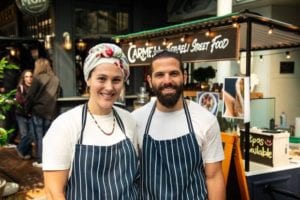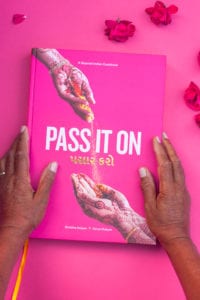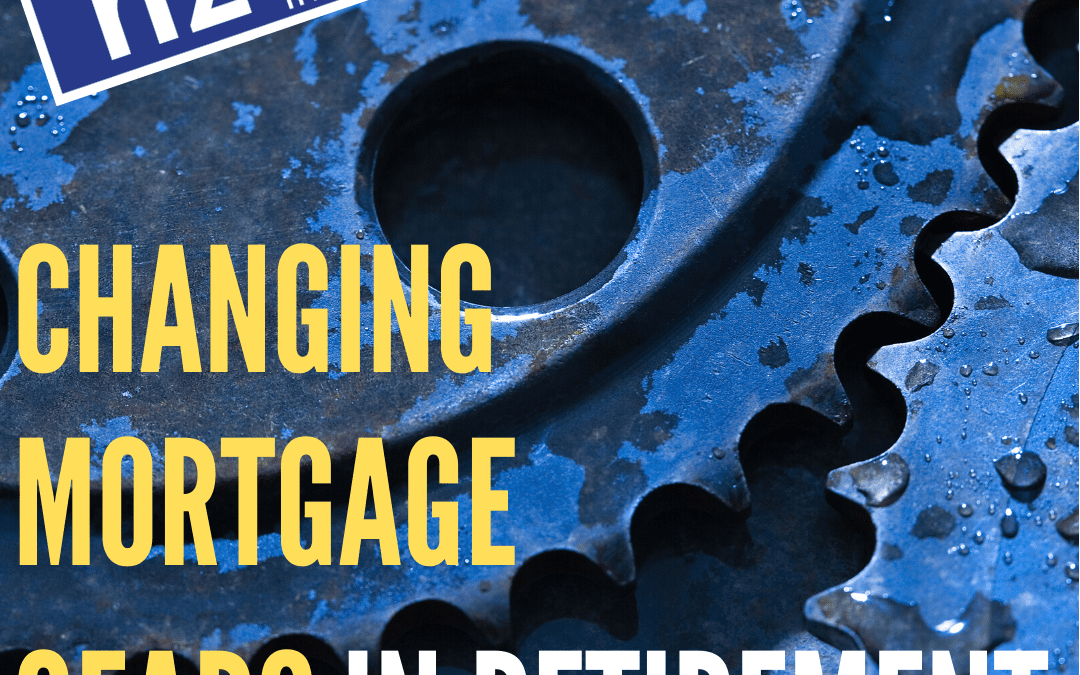
Changing Mortgage Gears in Retirement / Shaun Drylie
It’s hard to change your attitude or ‘turn your back’ on some of the goals you’ve achieved in life. If getting debt-free on your home was what you wanted to do before retirement, this may be something that needs to change – especially if you want a life which is ABOVE average.
Today’s episode is brought to you by the word –Retirement – perhaps it’s a long way off for you – but it’s important that we discuss this every now and then – and so that’s what today’s episode is really all about. Many people, either on purpose or by accident have a simple, default plan for retirement – Get debt-free on a home, then live off super and hopefully have this topped up some KiwiSaver funds.
A study done in 2018 showed that actual spending of a typical retired couple, revealed a shortfall in weekly income by just over $200 per week to fund a very basic lifestyle. So where can the rest come from? It has to come from somewhere right – so where?
It could come by working longer – that’s fine, if health permits, but working for life – really?
It could come by selling the home – but what if you don’t want to move to a smaller home, further away from where potentially your family and friends still live?
Apart from down-sizing the home, or working later on, the options are limited for retirees unless there’s sufficient other investments that they can draw down on
Another question is this – aren’t we allowed to have more? In retirement, don’t you want to travel, spend time with family, help the kids with getting started with property.
How can you make up the shortfall if everything is tied up in your home to simply live well – then beyond that, is there anything one could do to account for the unexpected costs you’ve experienced your entire life – these aren’t going away when you retire.
But in essence, If you have a choice today (and I appreciate some don’t) and if you had the power to influence your future (which hey, you do by the way), wouldn’t you prefer to choose an awesome lifestyle in retirement? I certainly would!
Today I’m talking with Shaun Drylie, Group CEO at SBS bank – relying on property is tricky with retirement planning, because it’s illiquid – it cant be converted to cash quickly. It’s why with retirement planning, it may not be included in the tool box of things that can be consumed in your later years.
So, for the everyday investor, those who do think property is the be all and end all when it comes to building wealth – could the equity in a debt-free home that we’re aiming for in retirement, be accessed to create an additional income source to supplement our lifestyle needs? The answer is yes, and it’s not as ugly as you may think.
Standard, orthodox financial advice, disagrees with classifying your main home as an investment. In reality however, the bulk of people who own property do actually think of their home as an investment – Is it time for us in the investment community to account for this somewhat heretical viewpoint I wonder?
A reverse mortgage has traditionally been frowned upon and I totally get why. In a sense, you’re turning your back on the habits that got you into the position you’re in – specifically, the position of having a debt-free home. Idealistically sure, it’s great to keep your family home separate and fund retirement by other means – but you can’t ignore the reality that for many, the only other option to supplement retirement needs is to sell up, and move into a property that you may not be ready for.
Often orthodox advice here is at odds with practical advice – and what I mean by this is simple: If you can stay living in your home, yet access capital in that property to live off of, then why not? Interest rates have been trending down for decades and in true fashion of blaming Covid for everything, what we’re seeing now is an acceleration of this trend – lower interest rates for longer, and higher asset prices will be a high probability outcome. To be honest, I’ve frowned upon these reverse equity mortgages in the past – but I think some new thinking is required here.
Not only will reverse mortgage likely become a little more mainstream for retirees –I can see how in some cases, older parents could assist their children with deposits, to purchase their homes sooner too. Kids have the income but limited deposit, parents have the equity but limited income – there could be something in this. Instead of waiting for mum and dad to sell up or hurry up and get dead, maybe there’s an opportunity for both groups to spend more time in property ownership? Maybe the folks could get a reverse mortgage, give the proceeds to the kids as a deposit to purchase their first home sooner. When the kids are in a position to pay back the parents – great. It’s a win-win, especially if property values on both the parents home, and the kids new purchase, increases over time.
Now, if you’d like to learn more about how a reverse mortgage could work for you, or for your parents, or even for both of you – there’s two things I can suggest:
1 – Get in contact with SBS to discuss this further
2- you can reach out for some advice from a registered or authorised financial adviser that you feel comfortable working with to discuss this with further
___________________________________
Like what you’ve heard?
You can really help with the success of the NZ Everyday Investor by doing the following:
1- Tell your friends!
2- Write a review on Facebook, or your favourite podcast player
3- Help support the mission of our show on Patreon by contributing here
4- To catch the live episodes, please ensure you have subscribed to us on Youtube:
5- Sign up to our newsletter here
NZ Everyday Investor is on a mission to increase financial literacy and make investing more accessible for the everyday person!
Please ensure that you act independently from any of the content provided in these episodes – it should not be considered personalised financial advice for you. This means, you should either do your own research taking on board a broad range of opinions, or ideally, consult and engage an authorised financial adviser to provide guidance around your specific goals and objectives.
_____________________________________________________________________________
Where to find Darcy Ungaro:
Ungaro &Co (authorised) financial advisers
Want to chat, then you can schedule in a free 15 min conversation just click on this link
Lastly, you can also subscribe to our newsletter to ensure you are receiving the latest updates.
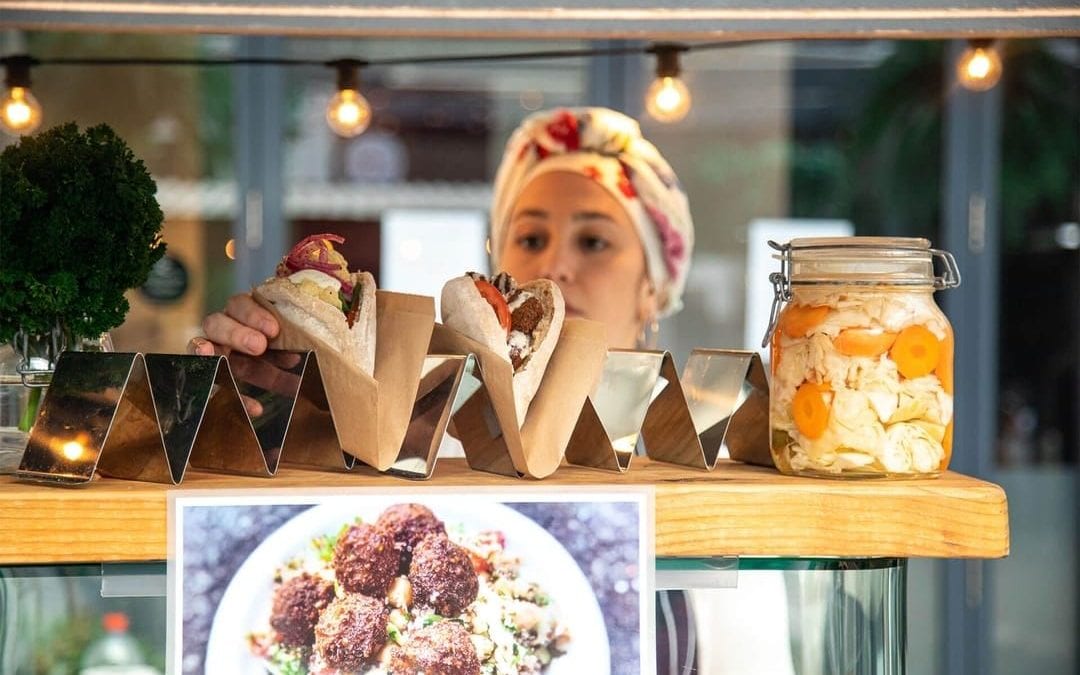
Pita, The Ultimate Street Food
Carmel Davidovitch is a Kiwi that grew up is Israel. She remembers eating hot, fresh falafel at hole-in-the wall Israeli joints as a child and seeking out local delights when she travelled the world as a flight attendant. After moving to NZ, Carmel was missing the street food of Israel, especially the pita bread. Being a baker by trade, Carmel decided the solution was to make her own.
She started the business on her own and her partner Tomer joined her as the business grew. Today they both work as a team with Carmel focusing on being the creative that cooks while Tomer handles taking the orders and sharing their story with the world. Their dream is to showcase the variety of Mediterranean food to Kiwi’s and take them on a gourmet journey without travelling too far.
Today, Carmel – Israeli Street Food has grown and takes part in events and markets around Auckland as well as catering weddings and private functions.
On the show, we chat about:
- Importance of food in Israeli culture and the tradition of Friday night dinners
- Lack of knowledge about Mediterranean food in NZ and how Carmel is solving that
- The versatility of pita and falafel in making great meals
- The reality of running a food business with your life partner
Quotes from the episode:
“Food is a really massive part of Israeli social events. Friday night dinners with your family, eating dinner just before Shabbat is a tradition that I really enjoy.”
“Pita for me is the ultimate street food. You can make a whole meal inside the pita pocket.”
“The key to working with your partner? Focus on being interested, not interesting.”
Follow their journey or book them for your next party: https://www.bycarmel.co.nz/
Listen to the Podcast Here:

Can capitalism save the planet? A review of ‘More From Less’
Taking a break from interviews this week, Vincent reviews the breakthrough book More From Less, by Andrew McAfee. Describing green growth as ‘Humanity’s Big Surprise’, McAfee argues that we can not only grow our economy through conventional capitalism but that we can simultaneously reduce our impact on the natural world. It’s the miracle of dematerialisation – and it’s happening faster than ever. Is he correct? Can capitalism save the planet? Vincent goes digging.
Hear the Podcast Here:
More From Less, by Andrew McAfee:
Amazon reviews of More from Less
Critical review by Foreign Affairs magazine
Andrew McAfee’s Ted Talk about More from Less
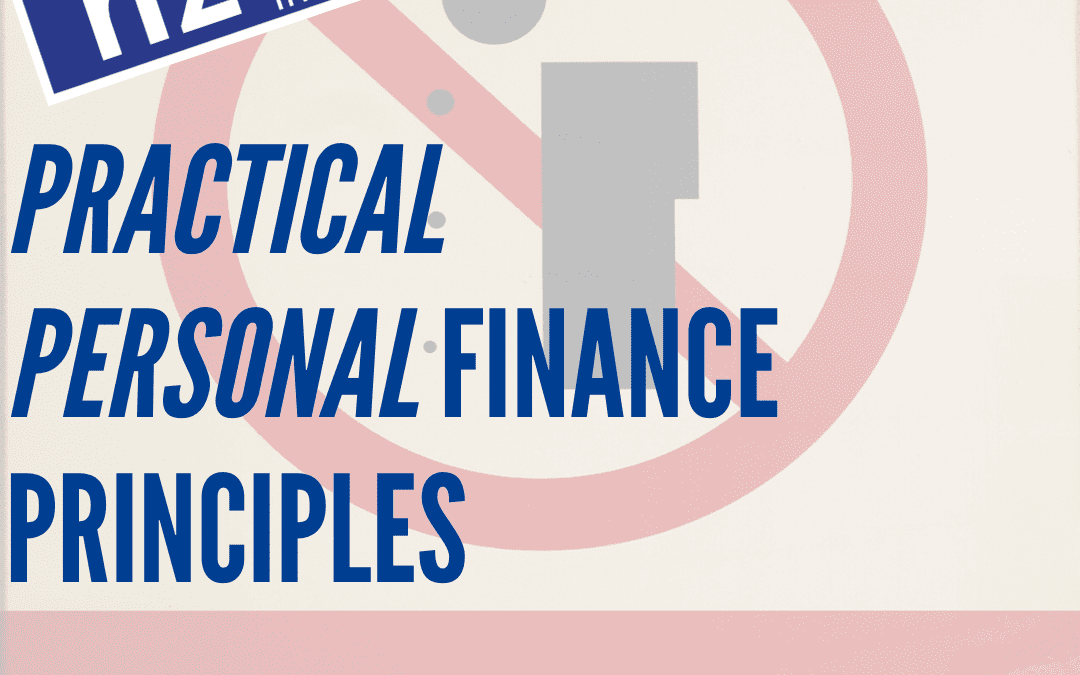
Practical Personal Finance Principles / Darcy Ungaro
In this episode, I’m going to cut through all the theory, and get straight to the point around how to succeed in the area of personal finance. What powers this episode is practical experience, learned from many wealthy people that I’ve met over the years.
To invest – or to grow wealth – or to build anything for that matter, you need to get the foundations down right – otherwise whatever you build may need to be torn down. One of the foundations we all need to sort out, and to check periodically, is our own personal financial management skills – this is where we need to delve into the topic of personal finance or money management.
Mainstream thought around personal finance could somewhat be summed up as follows:
– Save yourself wealthy
– Aim for ‘rich enough’
– Don’t pursue wealth as much as keeping to your budget.
What I’ve observed in my life and especially in the lives of those I work with who’ve done well with money, is that if you want to move to a place above average, shrinking back is not the best strategy – taking ground is.
In this episode, I aim to offend members of the cult of frugality, those who strive to repay their mortgage, everyone with a side hustle that involves making jam, and everyone not named Sue.
We’re covering principles like:
- Getting a real job
- Starting at the end
- Paying yourself first
- The magical power of giving and receiving
- Good debt vs bad debt
- The magical power of words
- Good buffers, bad buffers, and other peoples’ buffers
- Being accountable
- Getting into obscene levels of debt, as fast as you can.
Most of what I say you can take seriously in this episode, but some of it is simply to annoy those who take themselves too seriously – hope you enjoy!
____________________________________
Like what you’ve heard?
You can really help with the success of the NZ Everyday Investor by doing the following:
1- Tell your friends!
2- Write a review on Facebook, or your favourite podcast player
3- Help support the mission of our show on Patreon by contributing here
4- To catch the live episodes, please ensure you have subscribed to us on Youtube:
5- Sign up to our newsletter here
NZ Everyday Investor is on a mission to increase financial literacy and make investing more accessible for the everyday person!
Please ensure that you act independently from any of the content provided in these episodes – it should not be considered personalised financial advice for you. This means, you should either do your own research taking on board a broad range of opinions, or ideally, consult and engage an authorised financial adviser to provide guidance around your specific goals and objectives.
____________________________________________
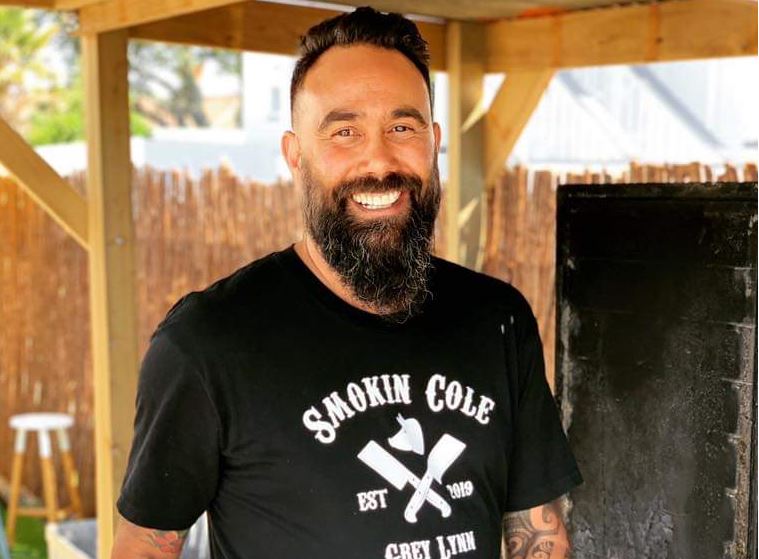
Smoked Ribs & Cooking for the Super Rich
Croydon’s on a mission to educate Kiwis on how a well-cooked rib should look and taste and is the only person to be doing dry rubbed ribs in Auckland. Hes cooked in Simon Gault’s kitchen, been a personal chef for Sir Richard Branson and has travelled to over 80 countries learning about all the amazing food these places have to offer.
The idea for Smokin Cole BBQ started by sheer accident. An idea born from a trip across America on Croydon’s Harley two years earlier riding across 14 states in four months solo to investigate the origins and flavours of the different barbecue there. His joint has the only fresh barbecue in Central Auckland and Croydon is in at 4.30am on most days to start prepping for his dinner service. Some of his cuts take up to ten hours to achieve the perfect smoky texture and taste!
Croydon started Smokin Cole in December 2019 and already his ribs have been voted as one of the best in Auckland City.
Specifically, we chat about:
- How the Auckland restaurant scene is getting more specialized and diverse
- What it’s like to cook when food cost is not an issue
- The joys of travelling for food, especially 7500 miles on a Harley!
Quotes from the episode:
“Cooking is something you either you love and have a passion for or it’s just too hard.”
“You’ve never really eaten a tomato until you have eaten one that is grown in Italy.”
“I was in America, the home of barbecue, low & slow. So, I bought a motorbike, and decided I would learn more about barbecue. I rode from South Carolina to California over four months eating barbecue, tasting it and learning how to cook with it. And, 7500 miles later here we are with Smokin Cole BBQ”.
Listen to the Podcast Here:

Will 3D Printed Rockets Disrupt Rocket Lab + Space X?
Amazon buys autonomous driving company Zoox, Microsoft retail stores future is online, 3D printed Rockets and what this means for SpaceX and Rocket Lab, SpaceX futuristic spaceports, Microsoft’s endpoint security with Microsoft Defender Advance Threat Protection Android and iOS (refer to Magic Quadrant for Endpoint Protection Platforms), Vodafone offers unlimited Rural Broadband, Olympus selling camera division.
Hosted by Paul Spain and this week’s guest: Greg Hutana.
Listen to the Podcast here:
NZ Tech Podcast
Paul Spain
Gorilla Technology
Free Tesla Supercharging
Special thanks to organisations who support innovation and tech leadership in New Zealand by partnering with NZ Tech Podcast:
Umbrellar Connect
Sumo Logic
HP
Samsung
Vodafone NZ
Spark NZ
Vocus
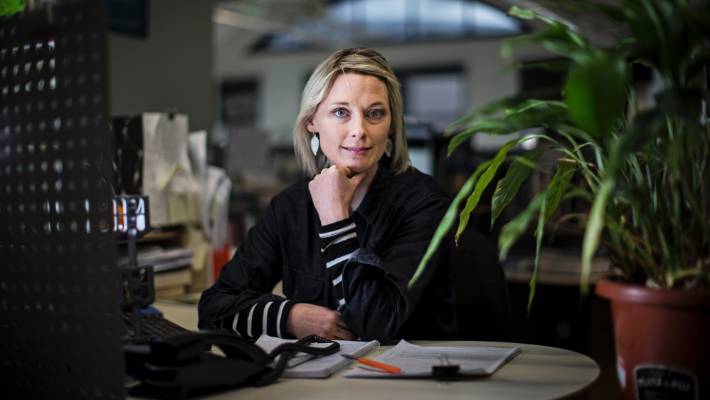
The climate front-line: Eloise Gibson, climate change editor
Eloise Gibson is New Zealand’s first reporter to be appointed a climate change editor in a mainstream media outlet. The award-winning business journalist joined Stuff.co.nz earlier this year and was pleasantly surprised by the warm reception from the science and business community. But did readers do the same? I spoke to Eloise about her fans and critics, Stuff’s commitment to science and keeping her spirits up on the front line of climate news.
Hear the Podcast Here:
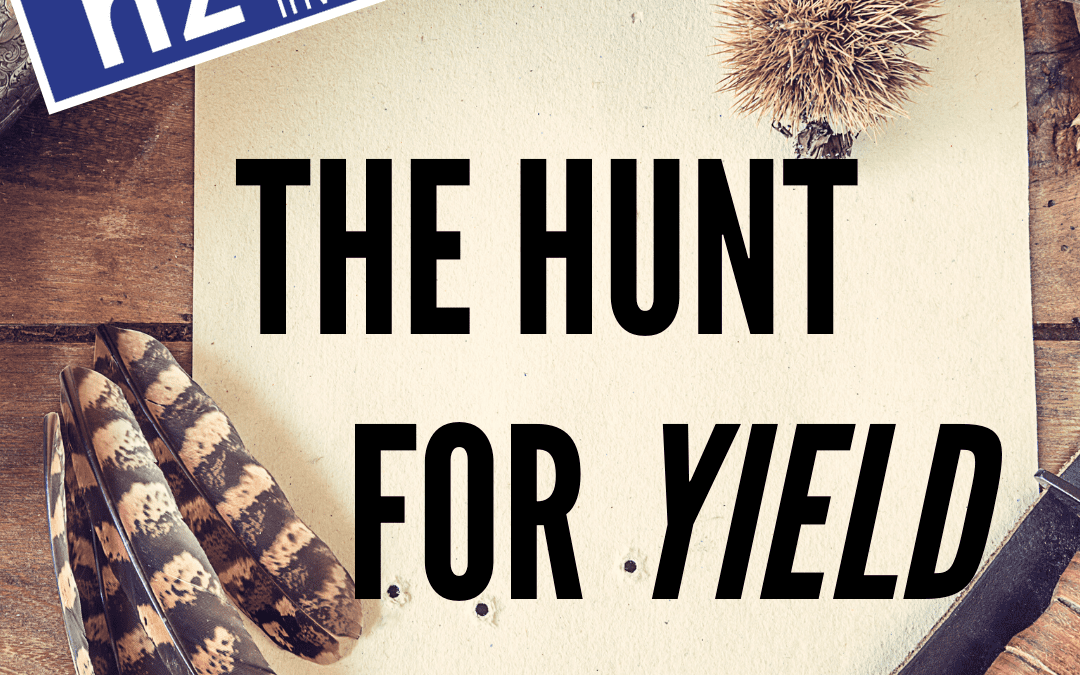
The Hunt for Yield / David Boyle
Investing – if you don’t do it, inflation could destroy what you currently have. If you DO do it however, be aware of the tendency for many investors to “Hunt Yield”. In many cases, investors who chase yield, get risk, but not the compensation that should come with it.
Investing in assets which grow in price over time, hopefully above the rate of inflation and after fees, is the antidote for evils of inflation.
Investing involves risk though – risk that what you invest could go down in price and risk that you may not be able to get your money out in a hurry. If you’ve decided to invest to grow your base of wealth – here’s three things to keep in mind, or three golden rules:
– INVEST REGULARLY. This is so important: timing the market where you buy low and sell high is great perhaps for some, but for most of us, we cant get the timing right. Dollar cost averaging is the best way to consistently scale in over time to get the exposure you want, without getting the timing piece perfect.
– GET ASSET ALLOCATION RIGHT. A good portfolio will have the following ingredients, cash, fixed interest, property and shares. The mix or blend of these different asset classes is crucial to strike the right balance between liquidity (that’s the ability to convert your investment into cash quickly), risk (which is the possibility the price of your investment could drop) and returns (which is your compensation for risk and liquidity)
– START WITH THE END IN MIND. Most investors, especially when starting out, view the whole investing thing as a game – a game they want to win, but there’s so much more to it. What is it that you’re trying to achieve? Have you factored in how much you need to live the life you’re aiming for in retirement? What about your kids, what about your family, what are you doing with your home in retirement plus how long do you think you’re going to live for– these are all things that can help set the appropriate amount you need to set aside from today, for tomorrow to be taken care of
In today’s episode I’m talking with David Boyle from Mint Asset Management
The Hunt for Yield is our topic. In an environment where interest rates are super low, and there’s a significant disconnect between Main St and Wall St., how can investors still do well, without losing everything? Hope you enjoy today’s episode!
As per episode, here are some links referenced in the show
https://www.playitstrange.org.nz/
https://www.planetaudio.org.nz/friends-to-the-enz
____________________________________
Like what you’ve heard?
You can really help with the success of the NZ Everyday Investor by doing the following:
1- Tell your friends!
2- Write a review on Facebook, or your favourite podcast player
3- Help support the mission of our show on Patreon by contributing here
4- To catch the live episodes, please ensure you have subscribed to us on Youtube:
5- Sign up to our newsletter here
NZ Everyday Investor is on a mission to increase financial literacy and make investing more accessible for the everyday person!
Please ensure that you act independently from any of the content provided in these episodes – it should not be considered personalised financial advice for you. This means, you should either do your own research taking on board a broad range of opinions, or ideally, consult and engage an authorised financial adviser to provide guidance around your specific goals and objectives.
_____________________________________________________________________________
Where to find Darcy Ungaro:
Ungaro &Co (authorised) financial advisers
Want to chat, then you can schedule in a free 15 min conversation just click on this link
Lastly, you can also subscribe to our newsletter to ensure you are receiving the latest updates.

Inflation: Friend or Foe? Chris Tennent-Brown
Inflation – on the surface, it would appear at times as though you’re doing really well with investing. If the ‘wealth’ you see is increasing over time, this is great right – but have you factored in inflation?
Central banks around the world are churning out new currency at phenomenal levels right now – we call this quantitative easing or QE. The idea is to fill up the giant pothole left in our economies after a rather unpleasant first half of 2020.
As we’ve covered already on this show, there’s a huge difference between value and price / between currency and money. With all this money printing going right now– does this really lead to an increase in value over time, or just price levels?
Specifically, as investors, we’re justifiably concerned about this thing called inflation taking off as a result of quantitative easing. What if the currency that denominates our investments is watered down – has our net worth really increased?
In this episode – we’re asking the question about inflation – is it a friend or foe?
Chris Tennent Brown is the senior wealth economist at ASB bank, and he’s my special guest today. At the end of this episode, you’ll understand:
What is inflation?
How do central banks control it?
Why ‘money printing’ may not actually generate the inflation that logically, you’d expect.
Most importantly, we going to cover what we, as everyday investors should be doing, to hedge against inflation when trying to grow wealth.
____________________________________
Like what you’ve heard?
You can really help with the success of the NZ Everyday Investor by doing the following:
1- Tell your friends!
2- Write a review on Facebook, or your favourite podcast player
3- Help support the mission of our show on Patreon by contributing here
4- To catch the live episodes, please ensure you have subscribed to us on Youtube:
5- Sign up to our newsletter here
NZ Everyday Investor is on a mission to increase financial literacy and make investing more accessible for the everyday person!
Please ensure that you act independently from any of the content provided in these episodes – it should not be considered personalised financial advice for you. This means, you should either do your own research taking on board a broad range of opinions, or ideally, consult and engage an authorised financial adviser to provide guidance around your specific goals and objectives.
_____________________________________________________________________________
Where to find Darcy Ungaro:
Ungaro &Co (authorised) financial advisers
Want to chat, then you can schedule in a free 15 min conversation just click on this link
Lastly, you can also subscribe to our newsletter to ensure you are receiving the latest updates.
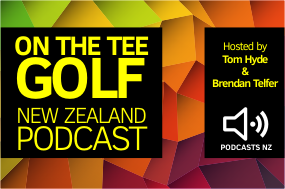
What Now For Mark Brown?
Mark Brown, one of New Zealand’s most accomplished professionals, has retired from touring. Brown, who won just about every NZ amateur title there is before turning pro, reached a world rank of 57 winning on both the Australasian Tour and the European Tour. He talks with our hosts about those halcyon days travelling the globe and what’s its like now that he’s settled back in New Zealand and looking to spend more time coaching and raising a young family.
Listen now:
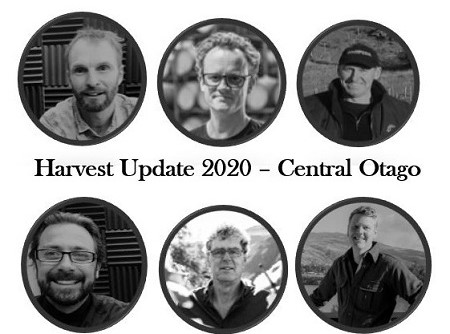
Harvest Update 2020 Central Otago – NZ Wine Podcast 67
Winemakers from Central Otago give us their insights into the 2020 harvest in what’s shaping up to be an exciting vintage. Recorded mainly through May 2020.
Listen to the Podcast Here:
Apple Podcasts
Overcast Castbox
Spotify Rss
Episode Links:
Dave Sutton – Te Kano Estate: www.tekanoestate.com
Grant Taylor – Valli Wine: www.valliwine.com
Craig Gasson – Lamont Wines: www.lamontwines.co.nz
Phil Handford – Grasshopper Rock: www.grasshopperrock.co.nz
Malcolm Rees-Francis – Rockburn Wines: www.rockburn.co.nz
www.nzwinepodcast.com
www.instagram.com/nzwinepodcast
Music track featured on this podcast: ‘Kuaz’ – courtesy of Brent Page. Dog Squad Music
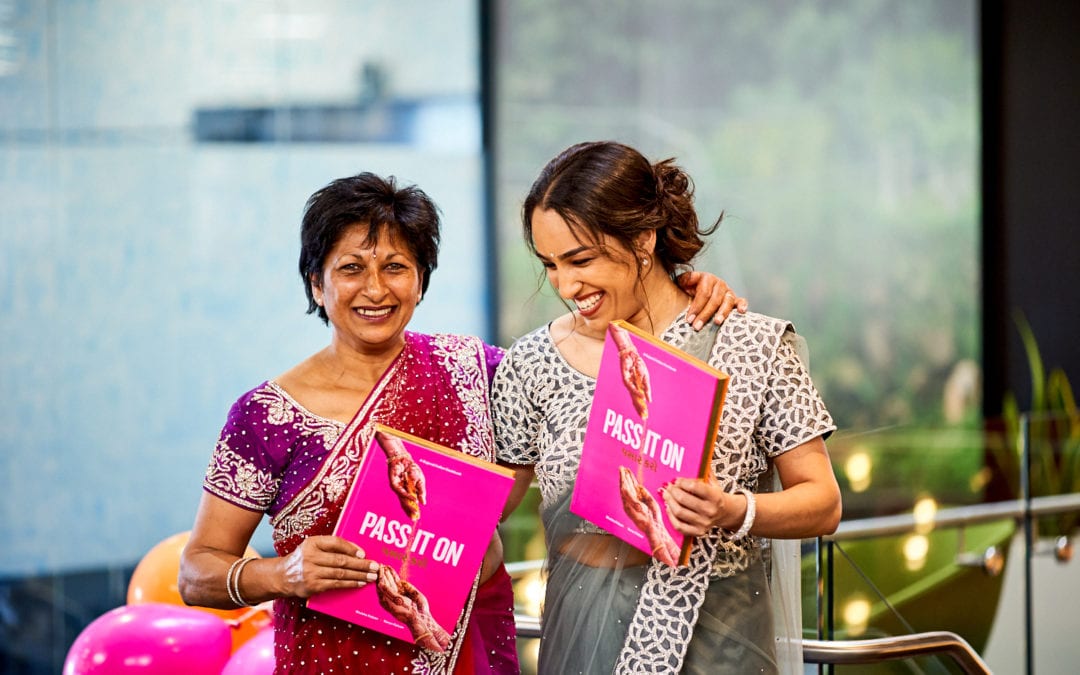
Self-publishing food memories: Pass It On Cookbook
Mother-daughter duo Keryn & Shobha Kalyan are New Zealand born Gujarati’s. Shobha’s grandparents were one of the first Gujarati families to arrive in Aotearoa in the 1920s. Despite having very strong Kiwi roots, both Shobha & Keryn have grown up eating authentic Gujarati food and they learnt the art of Gujarati cooking the Indian way, by using all five senses.
There were never any measurements or recipes, just an oral passing down of generations worth of food memories.
Shobha has always dreamt of writing a cookbook and so the duo began the painstaking process of documenting the food they wanted to write about. In 2019, two years after they first began, “Pass It On” was released, a gift to Keryn and her two sisters and a preservation of their culture. The book is a bright and inviting collection of Gujarati recipes that have been handed down over generations. Shobha found translating the 103 recipes into simple instructions a hard task while Keryn, who had no photography experience, watched YouTube videos and painted backdrops to create the beautiful full-page images in the book.
On the show I talk to them about secret recipes and why we need to uncover them. We talk about our joint Indian heritage and why it is so important for immigrant Kiwi’s to have a way to access their past through their food.
Listen to the Podcast Here:
Specifically, we chat about:
- Importance of passing on family food memories
- What it takes to self-publish a cook book in New Zealand
- How do you get your book out there?
- Fundamentals of Gujarati cooking
Quotes from the episode:
“With self-publishing you can have full creative control of your book. So, you can choose how you want it to look and how long it took you to write it. It helped us take control of how we wanted our book to be”
“When you self-publishing you’re essentially creating a small business. You’re doing the marketing, the distribution, hiring freelancers to fill gaps in your skills”
“It was mum’s dream for so long and it’s been awesome being able to make it happen.”
“Writing a recipe is actually really hard, thinking about all the components that’s needed and then making sure we are weaving our family stories through all the dishes featured there”
Pass it On Cookbook: https://www.passitoncookbook.co.nz/

